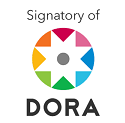Advances and trends in smart technologies for health system management
Abstract
The overall objective of the research was to analyze developments and trends in smart technologies for health system management. The research was carried out from a quantitative perspective through the retrieval, collection and analysis of documentary and bibliographic references. In this sense, the researchers used a bibliographic design of documentary type to carry out a research process in which the study population is mainly based on written documents, texts and refereed works, in addition to taking into account the analysis of the content of the information collected, which allows obtaining results. The analytical-synthetic and inductive-deductive methods were used. It is concluded that advances in smart technologies have significantly changed the administration and functioning of the health system in recent decades. These innovations have demonstrated their ability to improve the efficiency, accuracy and quality of health care
Downloads
References
Andina. (julio 3 de 2023). Semana de la Innovación 2023: se inauguró el evento de tecnología más importante del país. [Innovation Week 2023: the most important technology event in the country has been inaugurated]. https://n9.cl/tahy8
Comisión Económica para América Latina y el Caribe. (2021). Tecnologías digitales para un nuevo futuro. [Digital technologies for a new future]. Publicación de las Naciones Unidas. https://n9.cl/5cdat
Dávila Newman, G. (2006). El razonamiento inductivo y deductivo dentro del proceso investigativo en ciencias experimentales y sociales. [Inductive and deductive reasoning within the research process in experimental and social sciences]. Laurus, 12(Ext), 180-205. https://n9.cl/nx847
Galindo Neto, N., Barbosa, L., Pereira, J., Henriques, A., y Barros, L. (2020). Covid-19 and digital technology: mobile applications available for download in smartphones. Texto & Contexto - Enfermagem, 29, e20200150. https://doi.org/10.1590/1980-265X-TCE-2020-0150
García Saisó, S., Marti, M. C., Mejía Medina, F., Pascha, V. M., Nelson, J., Tejerina, L., et al. (2022). La transformación digital para una salud pública más equitativa y sostenible en la era de la interdependencia digital. [Digital transformation for more equitable and sustainable public health in the age of digital interdependence]. Rev Panam Salud Publica. 2022;46:e1. https://doi.org/10.26633/RPSP.2022.1
Gobierno de España. (2020). ENIA: Estrategia Nacional de Inteligencia Artificial. Ministerio de Asuntos Económicos y Transformación Digital. [ENIA: National Artificial Intelligence Strategy. Ministry of Economic Affairs and Digital Transformation]. https://n9.cl/9jtcg
Gutiérrez Martínez, J., y Febles Estrada, A. (2019). Las tecnologías disruptivas y su aplicación en la medicina con vistas al 2030. [Disruptive technologies and their application in medicine towards 2030]. Revista Cubana de Salud Pública, 45(4). https://n9.cl/3u8lf
Lizalde Gil, M., Peñarrubia Lozano, C., Quílez-Robres, A., y Quintas-Hijós, A. (2021). Las TIC en la educación para la salud en universitarios. [ICT in Health Education at University students]. Cultura, Ciencia y Deporte, 16(48), 265-273. https://doi.org/10.12800/ccd.v16i48.1746
Masilamani, V., Sriram, A., y Rozario, A. (2020). Alfabetización en e-Salud de los jóvenes Credibilidad y calidad de la información sanitaria con móviles en la India. [e-Health literacy of young people Credibility and quality of mobile health information in India]. Revista Científica de Comunicaciones y Educación, 64(28);85-96. https://doi.org/10.3916/C64-2020-08
Organización de las Naciones Unidas. (2020). Objetivos de Desarrollo Sostenible.La agenda para el Desarrollo. [Sustainable Development Goals.The Development Agenda]. ONU. https://n9.cl/g5xt
Organización Mundial de la Salud. (28 de junio de 2021). La OMS publica el primer informe mundial sobre inteligencia artificial (IA) aplicada a la salud y seis principios rectores relativos a su concepción y utilización. [WHO publishes the first global report on artificial intelligence (AI) for health and six guiding principles for its design and use]. https://n9.cl/afaeo
Pavón de la Tejera, I., Del Rio Caballero, G., Cano Ortiz, S., y Muradas Capote, S. (2023). Análisis tendencial y perspectivas actuales de las tecnologías sanitarias en el sistema de salud cubano. [Trend analysis and current perspectives of health technologies in the Cuban health care system]. Revista Cubana de Informática Médica, 15(2). https://n9.cl/76wdx
Rivera-Díaz, M., Varas-Díaz, N., Reyes-Estrada, M., Coriano, D., Ortiz, N., y Padilla, M. (2019). Tecnología móvil como herramienta potencial en la investigación sobre estigma asociado al VIH/SIDA entre estudiantes de medicina. [Mobile technology as a potential tool in HIV/AIDS stigma research among medical students]. Revista Puertorriqueña de Psicología, 30(1), 60-68. https://n9.cl/afaeo
Rodríguez, A., y Pérez, A. O. (2017). Métodos científicos de indagación y de construcción del conocimiento. [Scientific methods of inquiry and knowledge construction]. Revista EAN, 82, 179-200. https://doi.org/10.21158/01208160.n82.2017.1647
Copyright (c) 2024 Pedro Alonso Merino-Obando, Andrés Enrique Recalde-Gracey

This work is licensed under a Creative Commons Attribution-NonCommercial-ShareAlike 4.0 International License.
CC BY-NC-SA : Esta licencia permite a los reutilizadores distribuir, remezclar, adaptar y construir sobre el material en cualquier medio o formato solo con fines no comerciales, y solo siempre y cuando se dé la atribución al creador. Si remezcla, adapta o construye sobre el material, debe licenciar el material modificado bajo términos idénticos.
URL de OAI-PMH: https://iieakoinonia.org/ojs3/index.php/gestioep/oai














